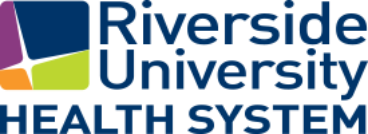Compassionate and Dedicated Care for You and Your Loved Ones

Your Journey to Wellness Starts Here
Riverside University Health System (RUHS) -- Behavioral Health is dedicated to helping individuals maintain mental health and overall well-being.
Our Services—Tailored Just for You
We prioritize wellness, recovery, and resilience. The Mindful Body and Recovery Program is an initiative by RUHS Behavioral Health that aims to establish best practices across the treatment continuum for eating disorders by launching the Eating Disorder Intensive Outpatient Program (ED-IOP).
The development of the ED-IOP will also create opportunities for training practitioners and learning how to manage a complex, higher level of care within a county system, while enhancing access to high-quality eating disorder services for Medi-Cal beneficiaries.
Additionally, the program will serve as a hub for outreach and education for community members and families. Our goal is to reduce stigma, increase awareness, link members to appropriate community resources, and provide early intervention for individuals and families struggling with eating disorders.
- Eating Disorders
Eating disorders are serious and potentially life-threatening illnesses that cause people to experience severe disturbances in their eating behaviors in relation to their thoughts and emotions. The most frequently diagnosed eating disorders include Anorexia Nervosa, Bulimia Nervosa, Binge-Eating Disorder, and ARFID. Anyone can develop an eating disorder regardless of their age, race, gender or ethnicity.
Statistics Eating Disorder Statistics - National Eating Disorders Association
- What are the types of Eating Disorders?
- Anorexia
- An inability to sustain a normal healthy weight relative to average weight for age, height and gender.
- Those suffering from anorexia:
- have an intense fear of gaining weight.
- have a distorted body image.
- have a preoccupation with food, cooking, or dieting.
- Bulimia
- Self-induced vomiting after binge-eating to avoid weight gain.
- Those suffering from bulimia:
- feel a lack of control over their eating.
- use the bathroom frequently after meals.
- engage in vomiting, laxative or exercise abuse.
- Binge-Eating Disorder (BED)
- The consumption of very large amounts of food in a brief period during which the person feels a loss of control over their eating.
- Those suffering from BED:
- eat large amount of food when not hungry.
- eat to cope with emotions.
- show signs of depression and withdrawal.
- Avoidant-Restrictive Food Intake Disorder (ARFID)
- ARFID (Avoidant/Restrictive Food Intake Disorder) is a condition that limits your food intake. It isn’t caused by a negative self-image or a desire to change your body weight.
- Those suffering from ARFID:
- lose interest in eating.
- feel anxious about the consequences of eating, like choking on food or vomiting.
- avoid foods that have an unwanted color, taste, texture or smell.
- Anorexia
- Treating Eating Disorders
- Visit your primary physician/pediatrician regularly for physicals and check-ins.
- Avoid using food as medicine.
- Seek emotional support.
- Utilize evidence-based treatments, including Family-Based Therapy, Dialectical Behavioral Therapy, Cognitive Behavioral Therapy, and Motivational Interviews.
- Use a multidisciplinary approach, which includes clinical staff, primary healthcare, physicians, a psychiatrist, and a registered dietitian.
- Be kind to yourself throughout the journey.
- Know the Signs
- Dramatic restriction of types or amount of food eaten.
- Lack of appetite or interest in food.
- Anxiety regarding weight, meal time, and social activities or gatherings.
- Dramatic weight loss.
- Denial of hunger.
- Support for Families
- F.E.A.S.T. walks alongside families as they navigate the challenges of their loved one’s eating disorder.
- The National Eating Disorders Association (NEDA) works to advance research, build community, and raise awareness to support the nearly 30 million Americans who will experience an eating disorder in their lifetimes.
- View their Parent Toolkit: https://www.nationaleatingdisorders.org/sites/default/files/nedaw18/1.%20ParentToolkit.pdf
- The Parents Survive To Thrive Guide offered by BC Children’s Hospital, and written by parents with lived experience, explores management of eating disorder behaviors, relapse, maintaining recovery, and some of the tricky scenarios you may run into, from shopping for new clothes to managing family conflict.
- Parents Survive to Thrive Guide: https://keltyeatingdisorders.ca/wp-content/uploads/2016/09/BCMH026_EatingDisorder_FullGuide_v6-Web.pdf
Frequently Asked Questions (FAQ)
- How can I access services for myself or a loved one?
Simply call our CARES Line at (800) 499-3008 to speak with a caring professional who will help you get started. Our CARES line team can assist you in finding the appropriate mental health, behavioral health and substance use resources and treatments.
Located at the RUHS Perris Valley Community Health Center
Community Needs
Over the past three years, records show that Riverside University Health System - Behavioral Health has received an average of 70 eating disorder referrals per year. This figure represents individuals transitioning from higher levels of care, such as Residential Eating Disorder programs, Partial Hospitalization Programs, and Intensive Outpatient Programs.
Visit the Center for Discovery - Eating Disorder Treatment page to find a treatment center near you offering evidenced-based treatment tailored to your needs. Also take a few moments to complete their Eating Disorder Quiz to help you understand if you or a loved one would benefit from supportive treatment options.
VIDEO LIBRARY SECTION
What is an Eating Disorder?
Signs of an Eating Disorder
Binge Eating Disorder: 5 Things You Can Do To Help Your Recovery
What is ARFID?
How to Help Someone with an Eating Disorder
Eating Disorder Video
Support for Parents
Recovery in the Queer Community – FEAST
Eating Disorders in the Black Community – NEDA
Carolyn Coker Ross on Race and Eating Disorders – NEDA
Autism and Eating Disorders – NEDA
Eating Disorders in the Latinx Community (English Version) – NEDA
Eating Disorders in the BIPOC Community – NEDA

